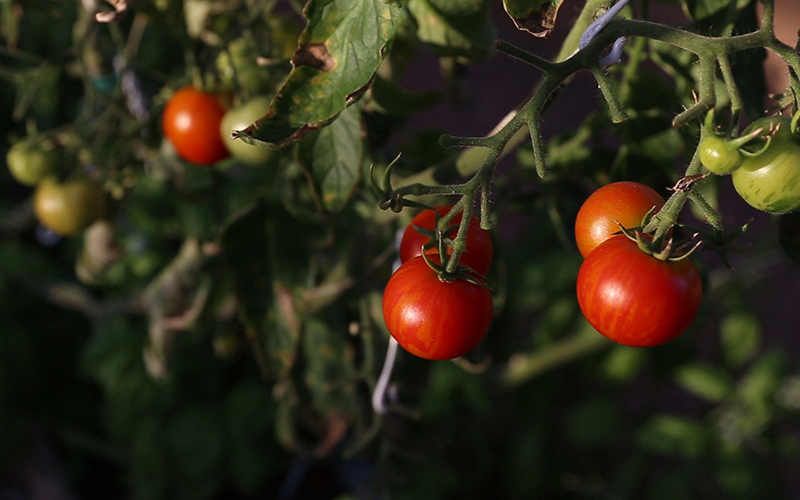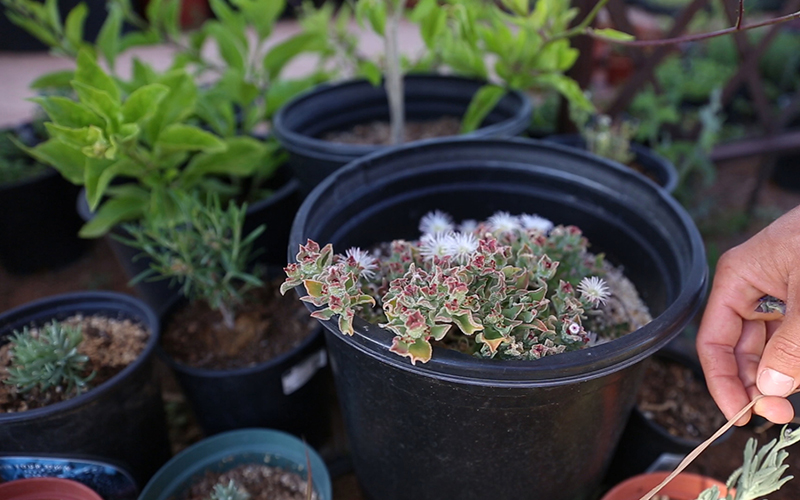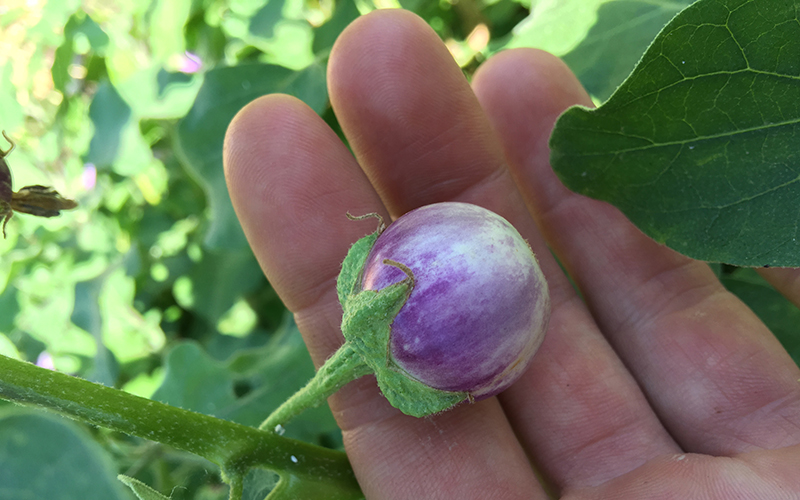- Slug: BC-CNS-Exotic Harvest,200
- Videos of Beger and Lewis available.
- Photos available (thumbnails, captions below)
By BLAKE HEMMEL
Cronkite News
SCOTTSDALE – Glacier lettuce. Thai lavender frog egg eggplant. Tigerella tomato. The rare plants are among those grown at Brother Nature Farms in Scottsdale.
Urban farmer Ian Beger, the owner and operator, grows more than 300 varieties of plants, including exotic plants from the Southwest and around the world.
Any farmer can grow tomatoes, corn and other produce that is familiar in the neighborhood grocery store. Beger wanted to set himself apart.
“You can only see these (varieties) if you’ve been to different countries or are an avid home gardener,” Beger said.
Beger sells and talks about his plant passions to customers at a local farmer’s market.
Mark Lewis, a retired teacher who also is a farmer’s market vendor, calls himself a food educator. Rather than shop at the local grocer’s, he and his family forage for more than 75 percent of the food they eat. Together, they travel from the Valley to the forests near the Mogollon Rim to the floor of the Sonoran Desert.
Anyone, he said, can forage for food. It saves money, time and gas. And, it’s more sustainable: instead of relying on food shipped from far away, people can step outside their doors.
^__=
Tigerella tomato: Sweeter than the typical tomato. It’s good raw, in salads, or in salsa. (Photo by Blake Hemmel/Cronkite News)
Glacier lettuce: Tastes juicy and salty. Complements sweet flavors and meats. (Photo by Blake Hemmel/Cronkite News)
Thai lavender frog egg eggplant: Tastes like lavender with a hint of cream. Can be eaten raw. It’s good in salads and salsa. (Photo courtesy of Brother Nature Farms)


